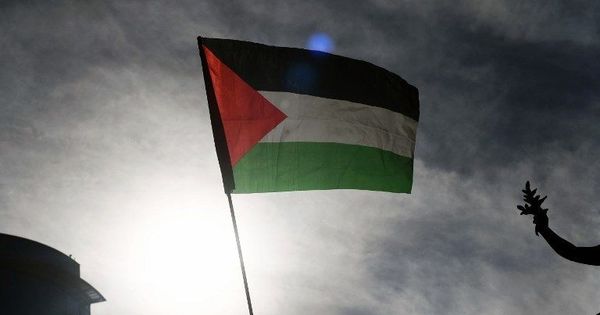Leaders emphasize the need for a two-state solution while condemning Hamas’s actions and Israeli policies.
The United Kingdom, Canada, and Australia formally recognized the Palestinian state on Sunday. British Prime Minister Keir Starmer stated that this move was aimed at reviving hope for peace between Palestinians and Israelis. He emphasized the importance of maintaining the possibility of a two-state solution, which envisions a secure Israel alongside a viable Palestinian state. Starmer noted that, currently, neither exists, highlighting the urgency of the situation.
Starmer also made it clear that the Palestinian militant group Hamas would not play a role in the governance of any future Palestinian state, insisting that the group must release the hostages it holds following the October 2023 attacks. Earlier in July, Starmer had indicated that the UK would recognize Palestine unless Israel addressed the dire situation in Gaza, which has escalated significantly since Hamas’s incursion into southern Israel that resulted in over 1,200 deaths.
Following the recognition by the UK, Canadian Prime Minister Mark Carney confirmed that Ottawa also acknowledges the State of Palestine. Carney expressed that Canada aims to partner with both Palestine and Israel to foster a peaceful future. He condemned Hamas for its actions against Israel and the suffering inflicted upon the people of Gaza, emphasizing the necessity for Hamas to disarm and cease its role in Palestinian governance.
Carney criticized the Israeli government’s ongoing efforts to obstruct the establishment of a Palestinian state, citing its military operations in Gaza, which have resulted in significant civilian casualties and widespread displacement. He remarked that the current Israeli government’s policy appears to be one of outright denial regarding the existence of a Palestinian state.
Meanwhile, Australian Prime Minister Anthony Albanese echoed similar sentiments, stating that Australia’s recognition of Palestine aligns with a coordinated international effort to generate momentum for a two-state solution, starting with a ceasefire and the release of hostages. This recognition acknowledges the legitimate aspirations of the Palestinian people for statehood.
As of March, 147 out of 193 United Nations members recognized Palestine as a sovereign state. Palestine has held non-member observer status in the UN General Assembly since 2012. Other nations, including Belgium, France, and Luxembourg, are anticipated to join this growing list of recognitions during an upcoming UN conference aimed at reviving the two-state solution.
In response to the announcements from the UK, Canada, and Australia, Israeli Prime Minister Benjamin Netanyahu reiterated his stance against a Palestinian state, asserting that such recognition rewards terrorism. He maintained that there will be no Palestinian state west of the Jordan River.
The recognition of Palestine comes amidst heightened tensions, particularly following Israel’s military operations in Gaza, which have escalated since the October attacks. The Congress party in India noted the significance of these recognitions, recalling that India had formally recognized Palestinian statehood in 1988. However, criticism was directed at India’s recent policy concerning Palestine, which has been characterized as lacking moral courage.
India has historically supported a two-state solution and has called for a ceasefire in Gaza, indicating that ongoing hostilities necessitate immediate dialogue and diplomacy as the only viable paths to peace. As the international community grapples with these developments, the recognition of Palestine by these nations marks a pivotal moment in the ongoing discourse surrounding the Israeli-Palestinian conflict.








